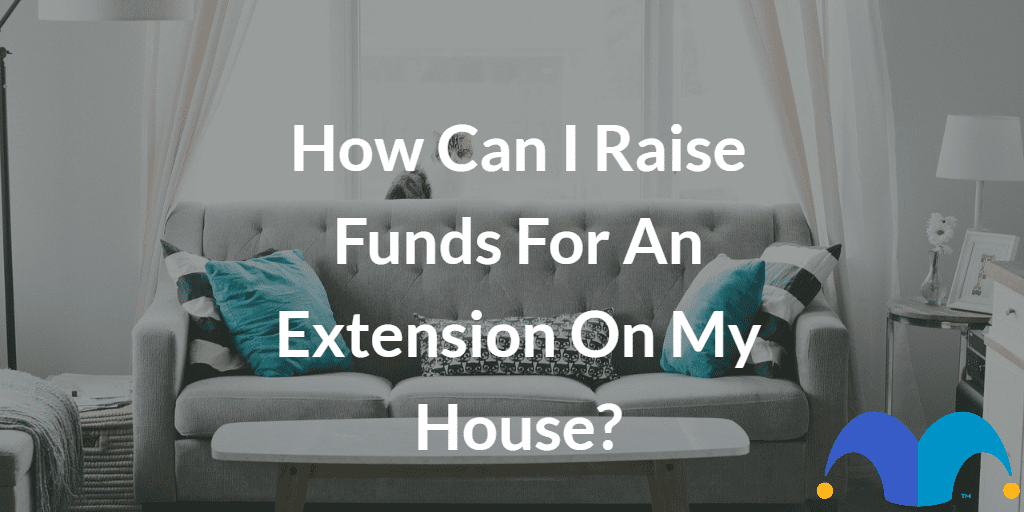A house extension can give you the extra living space you need without the hassle of moving house. The problem? Home extensions are expensive, so you might not have the cash available to fund the project. Don’t worry, though – there are many ways to fund a home extension. Let’s check out how much an extension might cost you, and your options for funding the building work.
How much does a house extension cost?
The exact cost always varies depending on factors like:
- the size of the extension
- the materials you use
- who you hire to do the work
Generally, you can build a basic side extension for around £15,000. If you want a bigger single-storey extension with, for example, a basic fitted kitchen, it’ll set you back around £35,000. Remember that these are just ballpark figures – you’ll need to contact a builder for an accurate quote and a breakdown of all costs involved.
How can I finance a house extension?
With these estimates in mind, though, here’s a rundown of the five most common ways to fund the job.
1. Savings
If you have personal savings, you can use the money for home improvements without the need to worry about applying for credit.
However, planning to use your savings for a house extension may not be the best plan. Why? Well, firstly, some savings accounts won’t allow you to withdraw large sums, so you might not have access to the money you need for the job. And secondly, if you use your savings for the project, you won’t have any cash available if there’s an emergency.
Depending on your circumstances, it might be worth getting financial advice before using personal savings for home upgrades.
2. Credit card
For relatively small home extensions, you can sometimes pay by credit card.
The main benefit? You’re covered by Section 75 of the Consumer Credit Act. If the job goes wrong, you can often get a refund. On the other hand, if you can’t afford the monthly repayments, you’ll damage your credit score and put yourself in debt.
If you decide to use a credit card, you might consider taking out a 0% credit card. You won’t pay interest for a set period of time, which will give you a chance to pay off the debt without paying interest charges.
Make sure you can clear the balance before the introductory rate ends, though, or you could be left with very high repayments.
3. Unsecured loan
For larger house extensions, you could think about applying for an unsecured personal loan. Loan repayments are usually fixed, which can help you manage your budget. You can also spread repayments over up to five years, which can keep costs manageable in the long term.
However, there are generally limits on how much you can borrow. So, if the loan doesn’t cover the whole cost, then you’ll need another source of finance. And, you’ll probably face early repayment charges if you want to settle the loan early.
While the APR might be lower than you’ll pay on a credit card, it’s still important to check that you’re getting a competitive interest rate if you choose this option. And remember, you need a good credit score, so there’s no guarantee you’ll be accepted.
4. Remortgaging
Another option is remortgaging your home, which means switching to a new mortgage product. You can usually access the funds you’ll need pretty quickly, and interest rates can be very competitive.
However, there are a few downsides. Depending on your existing mortgage, you might face early repayment charges which make it too expensive to go down the remortgaging route. What’s more, if you can’t afford the new monthly repayments, your home could be at risk.
Consider getting financial advice before remortgaging for a house extension.
5. Further advance
Finally, you could always just ask your mortgage lender if they’ll lend you more money on the existing loan. You won’t need to switch mortgage providers, and your lender might let you make overpayments to help clear the balance quicker.
However, you’re essentially increasing the size of your mortgage, which could make your loan more expensive over the long term. And again, if you can’t keep up with repayments, your home is at risk.
Takeaway
How you finance your house extension very much depends on your personal finances and the type of extension you’re building. While loans are suitable for some borrowers, others may prefer to save up for an extension without taking out more credit. And for some, it might make sense to use a combination of sources to fund your project. In short, always get financial advice before making a decision.
Finally, be sure to shop around for a range of home extension quotes. Don’t assume that the first price you’re quoted is the best deal available!
